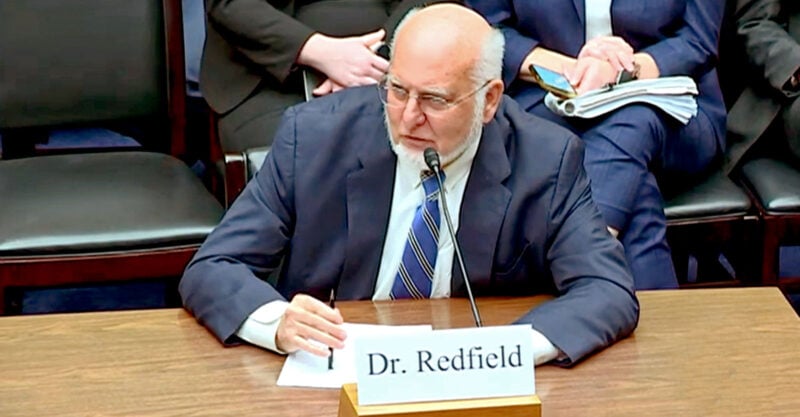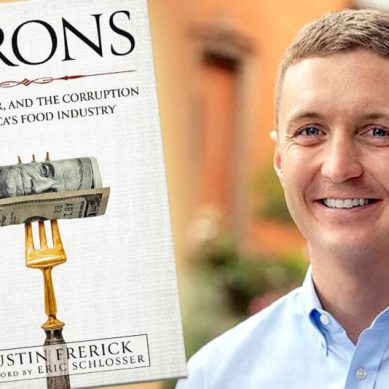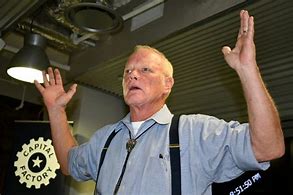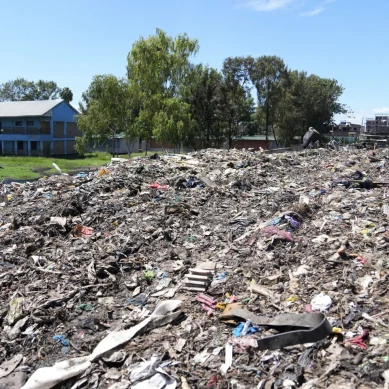
Dr Robert Redfield, former director of the Centers for Disease Control and Prevention (CDC), on Wednesday said he has “no doubt” the National Institutes of Health (NIH) and Dr Anthony Fauci funded gain-of-function research that likely resulted in the creation of Covid-19 and its subsequent leak.
Redfield made the statement during the first formal hearing of the Select Subcommittee on the Coronavirus Pandemic. The hearing included testimony related to the lab leak theory as a plausible explanation as the origin of Covid-19 and how the theory was shut down early in the pandemic in favour of narratives that Covid-19 had zoogenic – or natural – origins.
Committee members and witnesses also debated the future of gain-of-function research. Other witnesses on Wednesday included Jamie Metzl, senior fellow at the Atlantic Council; Nicholas Wade, former New York Times science editor and former deputy editor of Nature and Paul G. Auwaerter, clinical director in the Division of Infectious Diseases at the Johns Hopkins School of Medicine.
The hearing followed the subcommittee’s release of a memo revealing that key NIH figures, including Fauci, helped persuade virologists to write an influential article squelching the theory that Covid-19 may have leaked from a lab and asserting the virus evolved naturally.
The US Department of Energy (DOE) last month determined SARS CoV-2 most likely emerged from a laboratory in Wuhan, China – a theory later endorsed by FBI Director Christopher Wray. These developments helped lead to a Senate vote to declassify US intelligence documents on the origins of Covid-19.
Some of the witnesses called for gain-of-function research to be slowed down, paused or stopped entirely.
Redfield testified that the “Covid-19 pandemic presents a case study on the potential dangers of such research,” and said, “we should call for a moratorium on gain-of-function research until we have a broader debate and we come to a consensus as a community about the value of [such] research.”
“I think the people that are advocates for gain-of-function research do believe that by doing this research, they somehow get ahead of the curve,” said Redfield. “I’m of the point of view that we don’t need to make pathogens more transmissible or more pathogenic in order to get ahead of the curve.
He told the subcommittee that as CDC director, he temporarily shut down the US biological research facility at Fort Detrick, Maryland, even though this decision “wasn’t very popular.”
“Our inspection showed that they were cutting corners in their biosecurity requirements … and so I shut the lab down for four to six months until they corrected their biosecurity,” Redfield said.
When asked whether gain-of-function research had ever stopped a pandemic, Redfield said, “No. On the contrary, I think it probably caused the greatest pandemic our world has seen.”
He said he personally did not see any “tangible benefits” to gain-of-function research at this time.
Auwaerter disagreed, telling the committee that “a robust public health infrastructure and global coordination are essential for surveillance to identify, track and contain potential threats” and called for “research capacity improvements to biosafety” at “biosafety level-four [BSL4] facilities.”
He added that some types of gain-of-function research “can help understand possible human pathogen interactions, assess the likelihood of an emerging pandemic and inform preparedness efforts, including surveillance and medical countermeasure developments.”
Metzl said it would be “a grave error” if biological research facilities were shut down, but asked “what are the guardrails?”
In an October 2022 interview with The Defender, Dr Francis Boyle, argued that all BSL3 and BSL4 labs should be shut down “immediately and effectively,” and that “otherwise, there is going to be another leak.”
Representative Brad al to helping us predict and prevent future pandemics, protecting our health and national security Wenstrup (Republican-Ohio), chair of the subcommittee, opened the proceedings by saying, “We are here today … to ask the fundamental question that this body failed to ask three years ago: Where did Wenstrup said that question is “fundament and preparing the United States for the future.”
He also said the question must be investigated “thoroughly, responsibly and honestly,” adding: “We don’t have a smoking gun. In three years, there’s been no track found to prove that Covid-19 evolved naturally from an animal or a mammal or a tick to become highly infectious to humans. The truth is we don’t know the origins of Covid-19 yet for sure.”
Ranking member Representative Raul Ruiz (Democratic-California), however, described the hearing as “a concerning step down the path of letting extremism get in the way of inquiry that should be led by science and facts,” stating that evidence regarding the origins of Covid-19 “remains inconclusive.”
“We must allow our scientists and intelligence communities to gather evidence without politicisation, extreme partisan rhetoric or conspiratorial accusations that vilify our nation’s public health experts,” Ruiz said.
Metzl said that “getting to this point has required a great deal of effort by a small but tireless, self-motivated and highly capable community of experts from around the world who have refused to be bullied into silence.”
Wenstrup, as part of his opening statement, lent support to theories that Covid-19 was engineered and subsequently leaked from a lab.
“The genome of Covid-19 is inconsistent with expectations and is unique for its group of viruses,” he said, adding that it has “unique characteristics” that are “optimised for human cells” and which “made it very infectious to humans.”
Wade, who has written extensively on the issue of Covid-19’s origins, told the committee that if the virus had emerged naturally, it should have left many telltale signs in the environment – but none have appeared yet, despite the Chinese government’s keen interest in finding them.
“Without such evidence, the natural origins idea has grown steadily weaker,” Wade said.
Redfield testified that since his “initial analysis of the data” early in the pandemic, “I came to believe, and I still believe today, that it indicates Covid-19 more likely was the result of an accidental lab leak than a result of a natural spillover event.”
He based his view on the biology of the virus, its “high infectivity for human-to-human transmission” and on “unusual actions in and around Wuhan in the fall of 2019.”
“It looked like this virus was engineered,” said Redfield. “We know the Wuhan Institute of Virology was conducting gain-of-function research on novel coronaviruses.”
According to Wade, this work was being conducted “under seriously inadequate safety conditions, and we know that viruses escaped from labs all the time. Clearly, lab leak has to be a strong possibility.”











